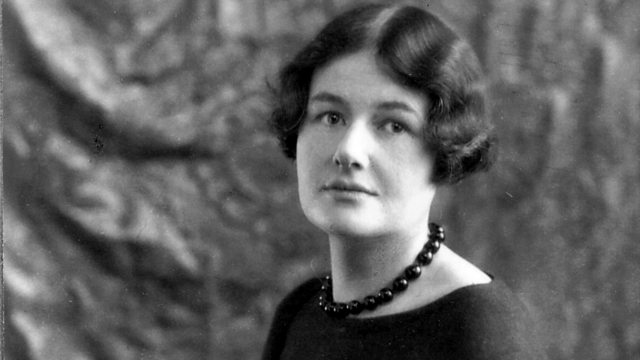
Studying with Stanford
Donald Macleod focuses on period Rebecca Clarke studied with Charles Villiers Stanford at the Royal College of Music in London.
Donald Macleod explores the period Rebecca Clarke studied with Stanford at the Royal College of Music
Rebecca Clarke was one of the leading viola-players of her generation and composed over one hundred works, many for her own instrument. In 1912 and aged only twenty-five, Sir Henry Wood engaged Clarke to play in his Queen's Hall Orchestra, and from then on she also performed with such luminaries as Pablo Casals, Jascha Heifetz and Myra Hess in orchestral and chamber settings. Clarke was at the pinnacle of music making both in the UK, and also giving concerts as she toured around the globe. Arthur Rubenstein called her 'the glorious Rebecca Clarke'. As a composer, her viola sonata has stayed firmly in the repertoire yet few other works are remembered today, despite at one point having three publishers negotiating to publish her works. Donald Macleod is joined by Christopher Johnson who married into Clarke's family, and also Ian Jones, Deputy Head of Keyboard at the Royal College of Music, to lift the veil on this once highly regarded performer and composer.
Rebecca Clarke was born in Harrow-on-the-Hill to the north of London in 1886. Her mother's family were mainly doctors, professors and clergymen from Bavaria. Her father, on the other hand, was from the United States and was a restless and colourful character, often given to beating his children. Clarke started to study the violin when she was young and in 1903 went to the Royal Academy of Music. However she didn't remain there long, for when her father found out she'd been proposed to by one of her teachers, he withdrew his daughter from the Academy. Soon she was enrolled at the Royal College of Music and started composition lessons with Stanford. A fellow student advised her to stand up to Stanford in her lessons, which she did, and Stanford and Clarke subsequently became very good friends. During this period at the RCM, which Clarke describes as an ecstatic time, she composed a number of works, including her Violin Sonata in D major and also her Danse Bizarre and Nocturne.
Lullaby
Philip Dukes, viola
Sophia Rahman, piano
Music, When Soft Voices Die
Choir of Gonville & Caius College, Cambridge
Geoffrey Webber, conductor
Theme and Variations in G major (excerpt)
Ian Jones, piano
Violin Sonata in D major
Lorraine McAslan, violin
Ian Jones, piano
Danse Bizarre
Lorraine McAslan, violin
David Juritz, violin
Ian Jones, piano
Nocturne
Lorraine McAslan, violin
David Juritz, violin
Ian Jones, piano
Producer Luke Whitlock.
Last on
More episodes
Previous
You are at the first episode
Music Played
-
![]()
Rebecca Clarke
Lullaby
Performer: Philip Dukes. Performer: Sophia Rahman.- NAXOS : 8.557934.
- NAXOS.
- 5.
-
![]()
Rebecca Clarke
Music, When Soft Voices Die
Choir: Gonville and Caius Coll. Cambridge Choir. Conductor: Geoffrey Webber.- ASV CDA1136.
- ASV.
- 8.
-
![]()
Rebecca Clarke
Theme and Variations for piano (excerpt)
Performer: Ian Jones. -
![]()
Rebecca Clarke
Sonata for violin and piano
Performer: Lorraine McAslan. Performer: Ian Jones.- Dutton CDLX 7132.
- Dutton.
- 8.
-
![]()
Rebecca Clarke
Danse Bizarre
Performer: Lorraine McAslan. Performer: David Juritz. Performer: Ian Jones.- Dutton CDLX 7132.
- Dutton.
- 2.
-
![]()
Rebecca Clarke
Nocturne
Performer: Lorraine McAslan. Performer: David Juritz. Performer: Ian Jones.- Dutton CDLX 7132.
- Dutton.
- 3.
Broadcast
- Mon 29 May 2017 12:00���˿��� Radio 3
Beethoven Unleashed – the box set
What was really wrong with Beethoven?
Composers A to Z
Who knew? Five eye-opening stories from Composer of the Week
Five reasons why we love Parry's Jerusalem
What is the strange power of Jerusalem which makes strong men weep?
A man out of time – why Parry's music and ideas were at odds with his image...
The composer of Jerusalem was very far from the conservative figure his image suggests.
Composer Help Page
Find resources and contacts for composers from within the classical music industry.





